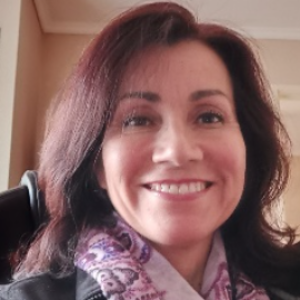Title : Intranasal administration of secretome derived from preconditioned human mesenchymal stem cells reduces the depressive behavior in a rat model of chronic unpredictable mild stress
Abstract:
Chronic stress exposure can induce in susceptible individuals maladaptive physiological responses, that can yield to changes in their emotional state, motivation and mental focus among others. Eventually these symptoms can worsen and became the central symptoms of the mayor depressive disorder (MDD), depressed mood and anhedonia.
MDD is a very disabling disorder, that affects people form a young age and has a remarkably high worldwide incidence, that is projected to further increase in the future, and therefore MDD is a major global health concern. Psychotherapy and or pharmacological treatment are used to treat this disorder. Nevertheless, not every individual responds to pharmacotherapy and the remission rate is only of a 65%. Therefore, new therapeutical approaches are urgently needed.
Unfortunately, given the multifactorial nature of MDD, its precise etiology and underlining mechanisms are currently not completely understood. Neuroinflammation an reduced neurogenesis appear to play an important role in MDD, however, available antidepressants are focused on increasing monoamine transmission. Therapeutical approaches directed to reduce the chronic inflammatory state and potentiate neurogenesis are promising treatment alternatives.Mesenchymal stem cells (MSC), known as the “guardians of inflammation” are an interesting alternative. When these cells are preconditioned with proinflammatory signals, they produce a variety of therapeutic molecules, like antinflammatory cytokines, and neuroprotector factors. These secreted molecules and exosomes are known as secretome and it can be obtained by growing the MSC in culture. Secretome can be administrated in a non-invasive way, intranasally, enabling the secretome to effectively reach the brain.
Animal models are an indispensable tool to investigate MDD pathophysiology and for testing potential pharma to treat MDD. In this study we used male rats submitted to a chronic mild unpredictable stress (CUMS) protocol for 8 weeks. In which a set of different stressors were administrated in a random (unpredictable) order, while keeping and age matched non-stressed group of rats as control. At week 8 animals in this group were divided in two groups. One group received at intervals of five days 4 doses of secretome (25ug protein obtained from 1x106 preconditioned human MSC (hMSC)) and the other group received saline solution (vehicle) following the same administration scheme. During the 3 weeks of treatment CUMS protocol was maintained. At this time (11 weeks) depressive like behaviors were evaluated using a test battery that included: sucrose preference test to assess anhedonic behavior, female urine sniffing test (FUST) to evaluate sexual motivation, the coat state as a measure of self-care and open field test used to evaluate anxiety. A score was assigned to quantify the magnitude of change in each of these parameters and to determine an overall depression score. We observed that animals treated with secretome derived from preconditioned hMSC showed a significant reduction in their depression score compared to vehicle treated animals. Secretome administration reverted anhedonic, apathic an anxious behavior, suggesting that this biodrug has an antidepressant potential. These preclinical data may constitute the basis for a future clinic testing of a new antidepressive biodrug for the treatment of MDD.




